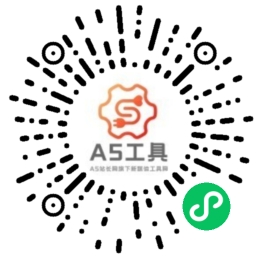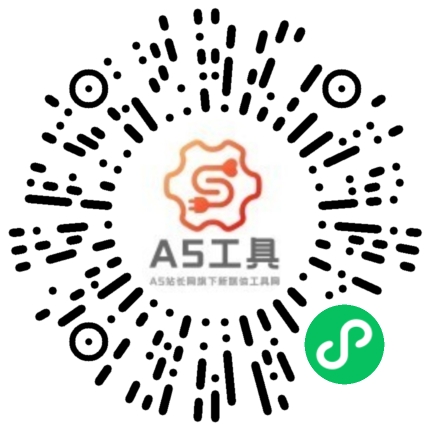声音克隆:技术前沿探索,我们准备好迎接“声音复制”时代了吗?
2025-04-23 18:05
**Could You Clone My Voice? Exploring the Frontiers of Vocal Replication Technology**
In an era where technology pushes the boundaries of what seems possible, one question stands out with intriguing allure: Could you clone my voice? This query, while once the stuff of science fiction, is now teetering on the brink of reality, thanks to rapid advancements in artificial intelligence and machine learning.
Imagine a world where your voice, with all its unique timbres, intonations, and nuances, could be digitally replicated with uncanny accuracy. A world where your spoken words could be immortalized, or perhaps even manipulated, at the flick of a switch. Such a prospect is not merely a distant dream; it's actively being researched and developed by some of the brightest minds in tech today.
But let's pause for a moment and consider the implications. How would such technology transform our daily lives? Would it revolutionize communication, entertainment, or even the legal landscape? And more importantly, what ethical considerations must we grapple with as we venture into this uncharted territory?
Consider the stats: According to a recent study by a leading tech research firm, the global market for voice cloning technology is projected to grow at a staggering CAGR of over 30% in the next five years. This rapid expansion underscores the immense potential and demand for such technology across various sectors, from personalized voice assistants to secure authentication systems.
Now, let's delve deeper into the technicalities. Voice cloning involves analyzing and synthesizing the unique characteristics of an individual's voice using AI algorithms. By feeding these algorithms vast datasets of recorded speech, researchers can train them to replicate not just the sound but also the emotional inflections and idiomatic expressions that make a voice uniquely yours.
But here's where it gets thought-provoking: What happens when this technology falls into the wrong hands? Could it be used to create deepfakes—convincing audio forgeries—that spread misinformation or undermine trust? The potential for misuse is a legitimate concern, one that necessitates robust ethical guidelines and regulatory frameworks to ensure responsible development and deployment.
Moreover, imagine the personal implications. Would you be comfortable with someone else using your cloned voice to interact with your friends or family? The blurring of identity and authenticity could lead to complex psychological and social dynamics that we're only just beginning to understand.
As we stand on the cusp of this vocal replication revolution, it's crucial to ask ourselves: Are we ready for a world where voices can be cloned with ease? The answer, it seems, lies not just in the advancement of technology but also in our collective ability to navigate the ethical and social landscapes it creates.
So, could you clone my voice? The answer, increasingly, is yes. But whether we should is another question entirely, one that demands our careful consideration and ongoing dialogue.
In an era where technology pushes the boundaries of what seems possible, one question stands out with intriguing allure: Could you clone my voice? This query, while once the stuff of science fiction, is now teetering on the brink of reality, thanks to rapid advancements in artificial intelligence and machine learning.
Imagine a world where your voice, with all its unique timbres, intonations, and nuances, could be digitally replicated with uncanny accuracy. A world where your spoken words could be immortalized, or perhaps even manipulated, at the flick of a switch. Such a prospect is not merely a distant dream; it's actively being researched and developed by some of the brightest minds in tech today.
But let's pause for a moment and consider the implications. How would such technology transform our daily lives? Would it revolutionize communication, entertainment, or even the legal landscape? And more importantly, what ethical considerations must we grapple with as we venture into this uncharted territory?
Consider the stats: According to a recent study by a leading tech research firm, the global market for voice cloning technology is projected to grow at a staggering CAGR of over 30% in the next five years. This rapid expansion underscores the immense potential and demand for such technology across various sectors, from personalized voice assistants to secure authentication systems.
Now, let's delve deeper into the technicalities. Voice cloning involves analyzing and synthesizing the unique characteristics of an individual's voice using AI algorithms. By feeding these algorithms vast datasets of recorded speech, researchers can train them to replicate not just the sound but also the emotional inflections and idiomatic expressions that make a voice uniquely yours.
But here's where it gets thought-provoking: What happens when this technology falls into the wrong hands? Could it be used to create deepfakes—convincing audio forgeries—that spread misinformation or undermine trust? The potential for misuse is a legitimate concern, one that necessitates robust ethical guidelines and regulatory frameworks to ensure responsible development and deployment.
Moreover, imagine the personal implications. Would you be comfortable with someone else using your cloned voice to interact with your friends or family? The blurring of identity and authenticity could lead to complex psychological and social dynamics that we're only just beginning to understand.
As we stand on the cusp of this vocal replication revolution, it's crucial to ask ourselves: Are we ready for a world where voices can be cloned with ease? The answer, it seems, lies not just in the advancement of technology but also in our collective ability to navigate the ethical and social landscapes it creates.
So, could you clone my voice? The answer, increasingly, is yes. But whether we should is another question entirely, one that demands our careful consideration and ongoing dialogue.
这篇关于《声音克隆:技术前沿探索,我们准备好迎接“声音复制”时代了吗?》的文章就介绍到这了,更多新媒体运营相关内容请浏览A5工具以前的文章或继续浏览下面的相关文章,望大家以后多多支持A5工具 - 全媒体工具网!
相关资讯
查看更多
克隆之声难触灵魂:技术虽妙,音乐真谛却在于情感原创
**克隆之声:当完美复刻遭遇音乐灵魂的缺失**
在这个科技日新月异的时代,我们见证了无数令人惊叹的奇迹,从人工智能到基因编辑,每一项技术的突破都在重新定义着人类的可能性。而在音乐领域,一个尤为引人注...

快影克隆声音总失败?揭秘解锁声音克隆成功的四大秘密武器!
**快影克隆声音总失败?解锁声音克隆成功的秘密通道**
在数字创意日新月异的今天,快影等视频编辑软件凭借其强大的功能,成为了众多创作者手中的魔法棒。然而,当这股创意浪潮遇上“克隆声音”这一技术难题时...

讯飞配音:能否克隆人声?技术强大,但需慎行!
**讯飞配音:能否克隆别人的声音?**
在科技日新月异的今天,人工智能(AI)技术正以前所未有的速度改变着我们的生活。其中,讯飞配音技术作为AI领域的一颗璀璨明珠,以其强大的文本转语音功能,在教育、...

克隆明星声音发作品:法律红线何在?侵权风险知多少?
**克隆明星声音发作品:合法边界何在?**
在这个科技日新月异的时代,克隆声音技术如同科幻电影中的桥段,正悄然走进我们的日常生活。通过先进的音频分析和合成技术,科学家能够模拟出与真人几乎无异的声音,...

克隆声音打电话:未来已来,哪款软件将引领声音克隆通话潮流?
**克隆声音打电话:未来通信的新篇章,哪款软件能引领潮流?**
在科技日新月异的今天,我们的通信方式正经历着前所未有的变革。想象一下,如果能够通过一款软件克隆自己的声音,并用这克隆的声音给别人打电话...

问界M5声音克隆:个性化声音,打造你的专属智能出行旋律
**问界M5声音克隆:让个性化声音成为未来出行的旋律**
在科技日新月异的今天,智能驾驶与智能互联已经不再是遥不可及的未来幻想,而是逐步融入我们日常生活的现实体验。而在这场汽车智能化的浪潮中,问界M...

豆包来袭:克隆你的声音读文案,智能语音新时代由此开启!
**豆包:用克隆声音读文案,开启智能语音新纪元**
在这个日新月异的智能时代,我们见证了无数科技奇迹的诞生。从自动驾驶汽车到人工智能助手,科技正以前所未有的速度重塑我们的生活。而今,一个全新的创意正...

剪映声音克隆:一键定制AI人声,视频创作从此“声”动不凡!
**剪映声音克隆:一键解锁专属AI人声,开启音频创作新纪元**
在数字创意日新月异的今天,你是否曾幻想过让视频中的角色拥有与名人相似的声音?或者,你是否希望自己的声音能够穿越时空,在多个场景中无缝衔...





